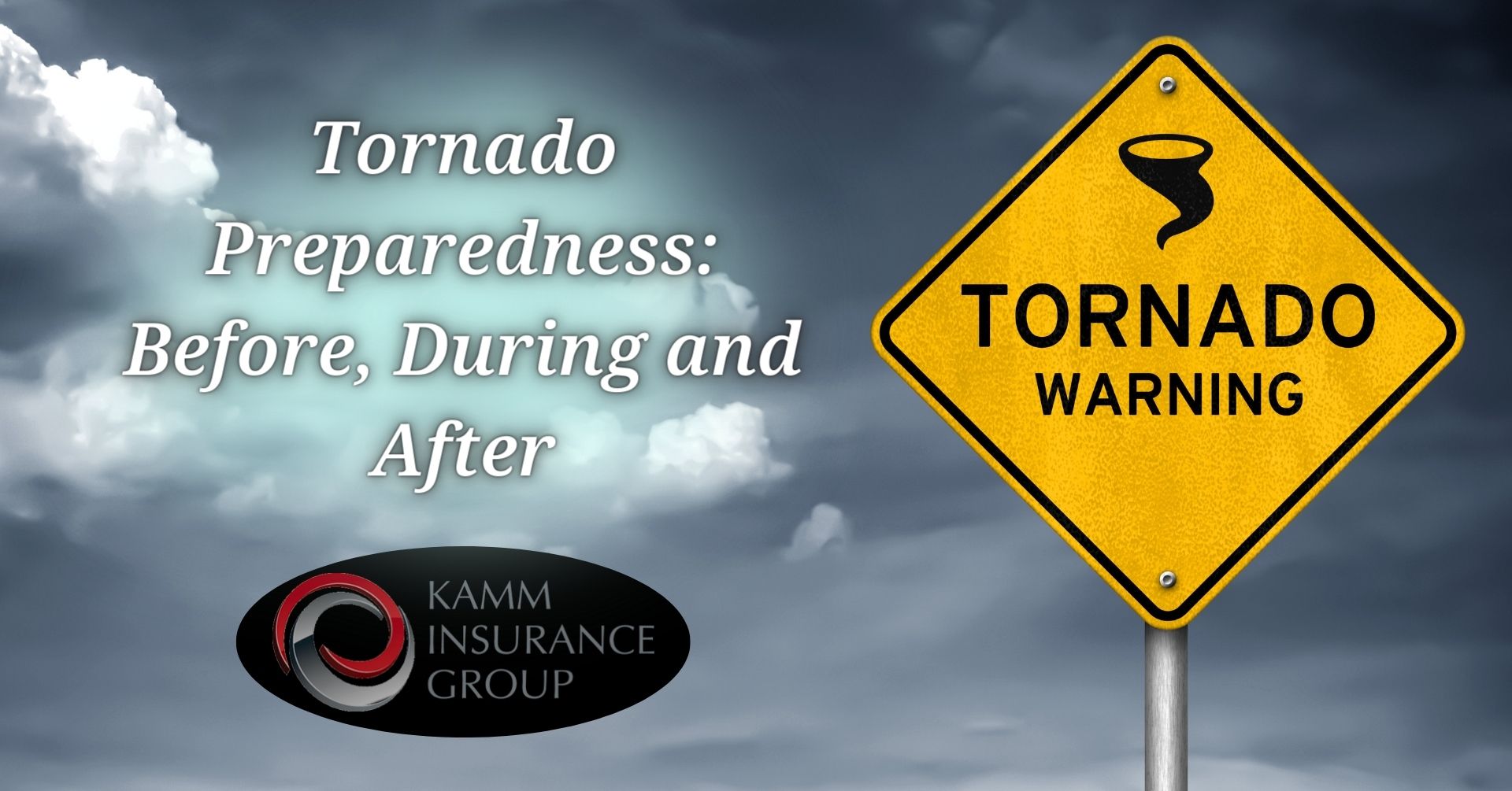
Dark storm clouds roll in, and winds start to howl. Your town’s tornado sirens start going off, and your smartphone buzzes with an emergency message: “Tornado warning. Seek shelter now.” What should you do to keep you and your loved ones safe?
A tornado is a rotating column of air extending from a storm cloud to the ground. Tornadoes can flip over cars, uproot even mature trees, and destroy buildings. We get tornadoes every now and then here in the Chicagoland area, such as the one that destroyed more than 200 homes in and around Naperville in June 2021. So all of us need to be prepared for the possibility of one in our neighborhoods.
Because a tornado could strike our area at any time, make sure to keep these preparations in mind:
- Make sure emergency alerts are enabled on your smartphone, and pay attention when they come in.
- Know what the tornado sirens sound like near your home and workplace.
- Identify the safest place to shelter in your home, and make sure everyone in your household knows where to go in the event of a tornado. If your home has basement, that is typically the best place to gather. If you don’t have a basement, choose an interior room away from any windows on the lowest floor of the building you can access.
- Make sure to have a plan for getting all children, elderly or disabled family members, and pets to your safe shelter.
- Keep some emergency supplies around in case you can’t get out of your house for a while after the storm, such as nonperishable food, blankets, flashlights, and bottles of water.
If you receive a tornado warning:
- If you are at home, go to your designated shelter space immediately, and make sure everyone else in your home does the same. If you are at work, follow your employer or building manager’s tornado safety procedures.
- Stay away from windows, doors, and exterior walls, as these can get damaged and create dangerous flying debris.
- If a storm rolls in while you are outdoors or on the road, go to the nearest safe shelter you can find. Avoid overpasses or bridges, as you want to be on solid ground if a tornado rolls through.
- Find out where public tornado shelters are located, in case a tornado strikes while you are away from home or work.
If a tornado touches down near you:
- Cover your head and neck with your arms and materials such as blankets or a sturdy piece of furniture.
- If you are out on the road, don’t try to outrun the tornado. Find the best shelter you can and protect yourself the best you can.
- Pay attention to emergency alerts you receive on your phone, and follow weather alerts from reputable sources on social media, TV, or the radio.
- Stay away from downed power lines. Only go into destroyed buildings to help your family members and pets get out safely. Leave the heavy cleanup to the professionals.
- Contact your healthcare provider if you are injured and need medical attention.
- Make sure to wear appropriate protective gear for any cleanup you do, such as thick-soled shoes, long pants, and work gloves. Wear a high-quality mask to protect yourself from debris and toxic mold.
Not having enough coverage can be just as traumatic as experiencing damage to your home and personal belongings. Take a few minutes to review your homeowners or renters insurance policy to make sure you have sufficient coverage in the event of a tornado.
Review your personal property coverage. Over time, we buy, sell, and replace items in our homes. You’ll want to have enough coverage to repair or replace your personal property in case of damage to your home and belongings.
Review replacement cost. Make sure your home has the right coverage to replace/repair your home. Will the amount on your policy cover the cost to completely rebuild your home? Please keep in mind that this is not the same amount as the value of your home in the real estate market. It is the actual cost, including labor and materials, to rebuild.
Contact Kamm Insurance Group to make sure you have the coverage you need. We can provide coverage from many insurance carriers so you receive the insurance for your budget and needs!
Source: https://www.ready.gov/tornadoes
https://www.redcross.org/get-help/how-to-prepare-for-emergencies/types-of-emergencies/tornado.html



